Taught by Trees: Growing Up Rooted in Nature
For as long as I can remember, I have always regarded nature as holy.
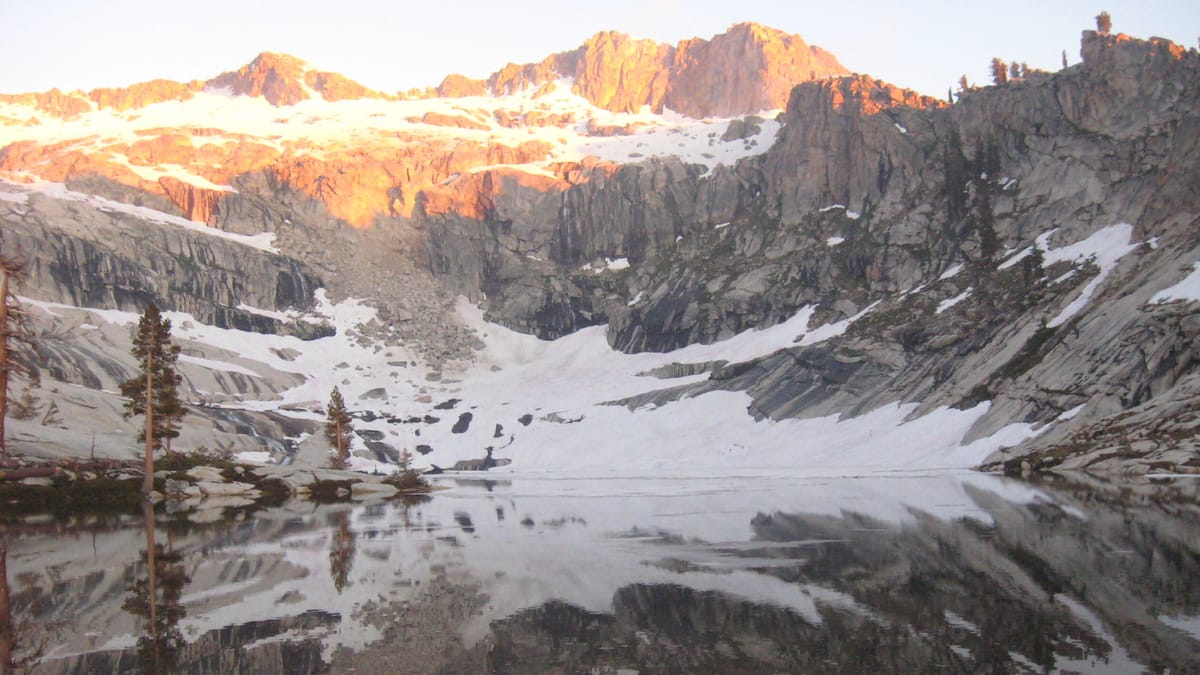
My parents fell in love paddling the Okefenokee Swamp in Georgia and crabbing in the Withlacoochee River in Florida. The Okefenokee is the largest blackwater wilderness swamp in North America. Its name is indigenous and means “Land of Trembling Earth”. The Withlacoochee flows west from the Green Swamp to the Gulf of Mexico and its name originates from Florida's Native American tribes meaning “Little Big Water”. I am forever grateful that my dad proposed to my mom on Sahale Mountain, in the Cascades, and my parents choose that as my namesake. Okefenokee Greenwood just doesn’t have the same ring to it. Sahale, on the other hand, means high holy ground: a meaning I feel extremely connected to.
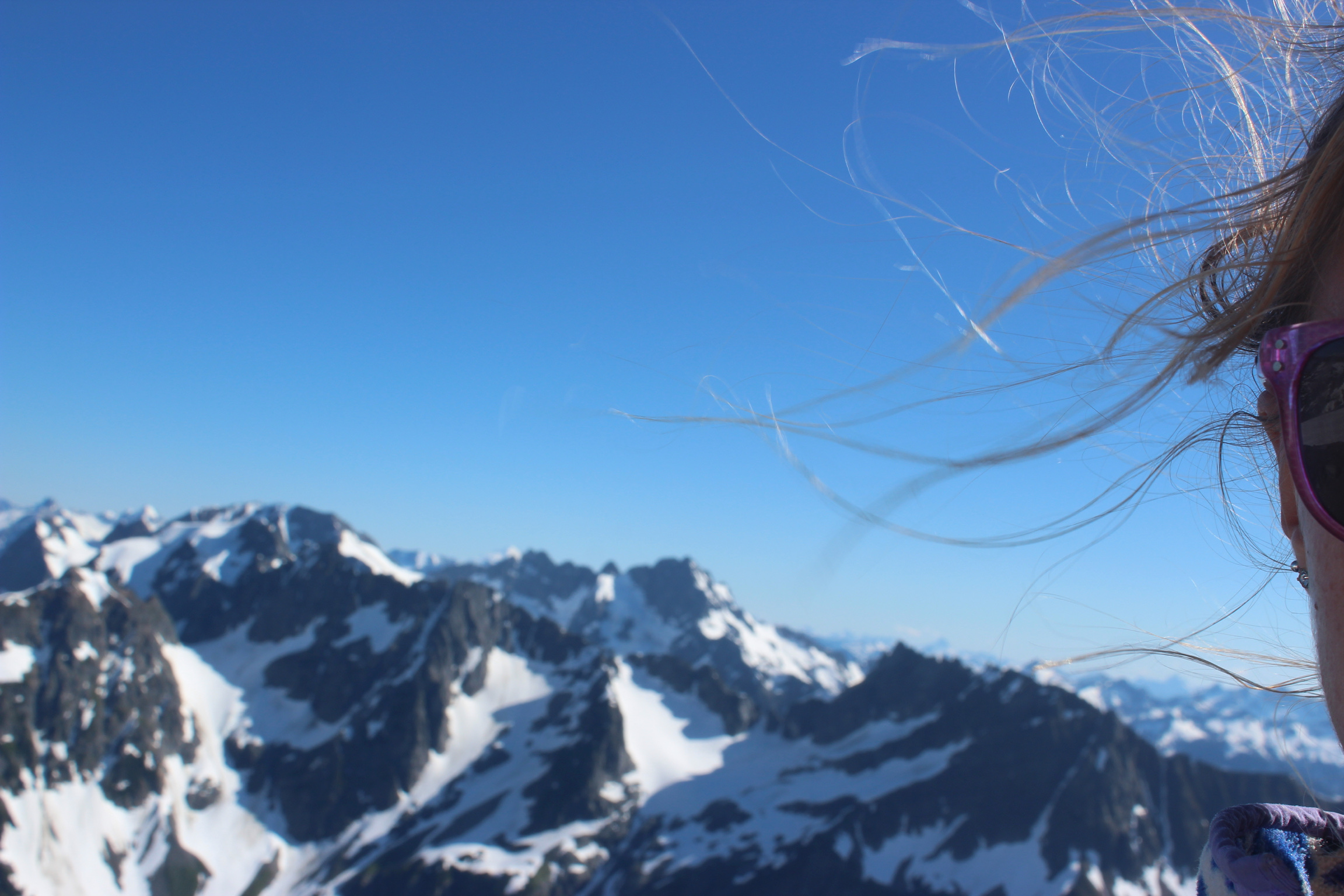
The Watlala, also called the Cascade Indians, believed that the great volcanoes and mountains that towered over their surroundings were deities. Some, like Mount Rainier and Little Tahoma, loved one another like mother and son, and others, like Mount Hood and Mount Adams feuded like brooding brothers both in love with the same woman, Mt. St. Helen. Tales of the mountains bleeding (spewing lava), hurling great rocks at one another (landslides), or providing much-needed shade, remind us that nature is alive and powerful beyond our comprehension. While the scientific age ushered in pivotal research and information on average temperatures, rates of melting glaciers, increasing fire danger, and record-setting floods, the mystic of nature remains. Between the years 1950 and 1997 there was a 48% decrease in the snowpack. A scientist would point to interdecadal time scales of the Pacific Ocean. A Watlala might say the mountains were weeping over a lost love. I do not offer this as a counterpoint to science, but an extension of it, one that people, especially children, may connect more deeply with as I did.
Family camping trips were my church growing up and I started contemplating natural processes happening around me and respected nature’s evolution and resilience, learning there was something greater to nature than the science that explains it. I identified if valleys were carved by rivers or glaciers depending on their V or U shape. I learned that natural fires are good because they open some types of seeds, called pyrophile plants. I learned that sometimes big trees need to fall so the meadow underneath can get long-awaited sunlight. But I also learned that Mother Nature is strong and beautiful and worthy of worship. And most importantly, in need of protection. I feel that my name destines me to a life devoted to keeping nature high and keeping it holy. However, without my childhood experiences in the outdoors, I would certainly not feel the connection to nature, to my name, and to my duty to give back to nature everything it has given to me.
When my parents had my brother 15 months after the snow-capped proposal and me 20 months after that, they continued their love affair with the outdoors, never leaving us kids behind. Even though my parents had to lug around two whiny tots, they never quit their love affair with the outdoors. We moved from the East Coast to California and began exploring the Sierra Nevadas. My parents pushed us to do longer and longer hikes and steeper and steeper climbs while carrying increasingly heavy loads. While walking the trails, my parents alternated between explaining the plots of Shakespeare’s dramas but substituting our neighbors’ names for the characters’, solving lateral puzzles, teaching us the intricacies of World War Two, and my personal favorite when my dad would tell the stories of Into the Wild and Touching the Void pretending he was apart of McCandless, Simpson and Yates’ adventures.
Eat Well, Sleep Sound
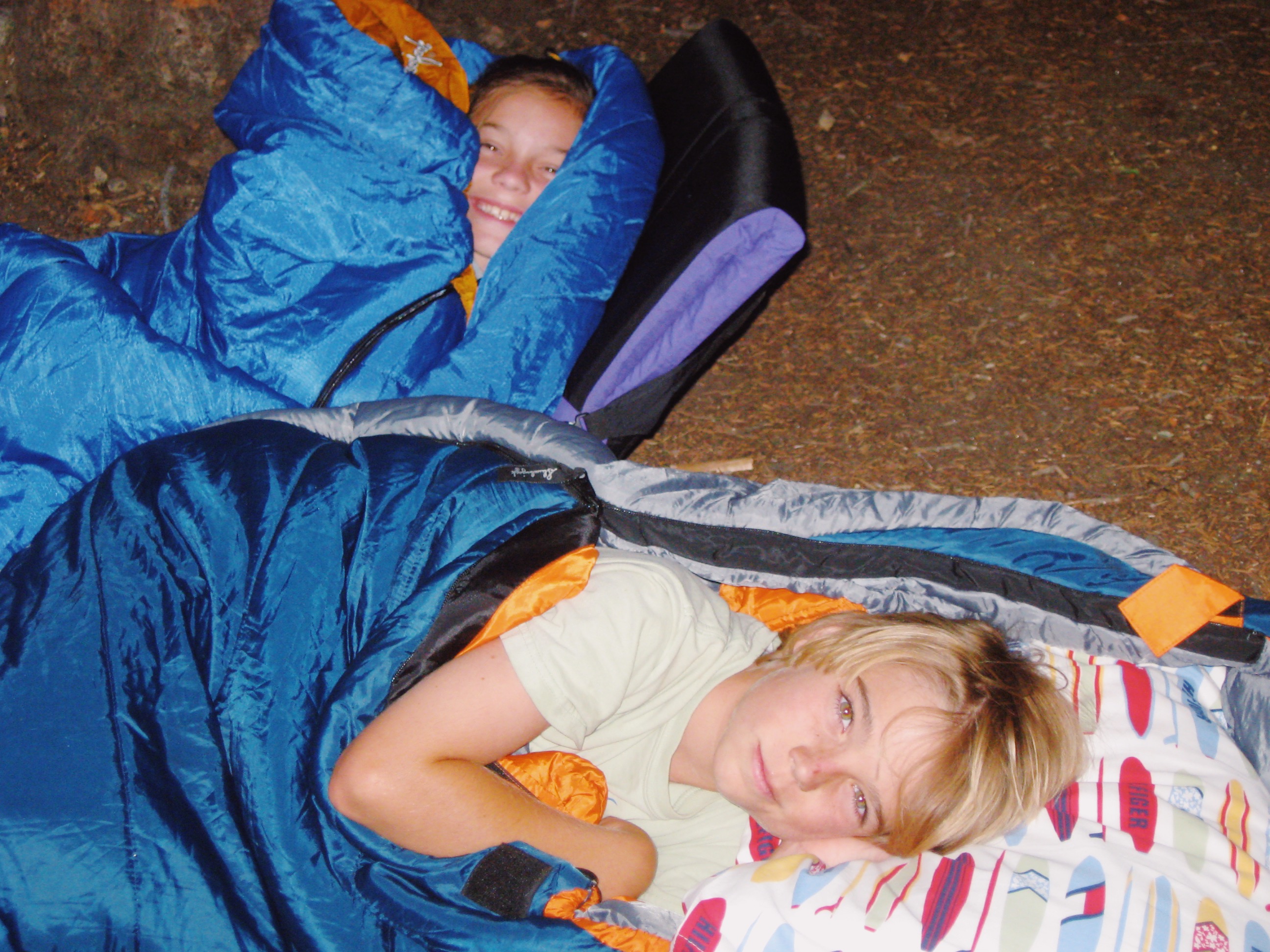
“if you aren’t eating well, you aren’t having fun.“
Our first backpacking trip was to Pear Lake, one of the most pristine high altitude lakes nestled into an awe-inspiring glacial bowl in the high Sierras. I was 12 and my brother was 14. The hike in was six miles and stopped along two other lakes, Heather and Emerald. My mother, a great planner, was committed to providing tasty meals at any and all altitudes. Our family’s philosophy was, if you aren’t eating well, you aren’t having fun. Heather lake is just about three miles in, making it the perfect halfway spot to stop, have lunch and take a quick dip. As mom unpacked chunks of brie, muenster, summer sausage, and crackers, my brother and I were already swimming through the crisp, aqua mineral water. My dad had encouraged us to jump in as far away from him as possible. He was already assembling his backcountry fishing pole, hoping we wouldn’t stir up all the water in the lake and we could add a tasty trout to our already luxurious lunch.
Taking breaks is so important when trekking with kids. It breaks a six-mile hike into two much more manageable three-mile hikes. Once we finished lunch and hiked to Pear Lake, it was already starting to get dark. We pitched our tent, made a quick dinner, put everything back into the bear bins, and read our books under the stars.
Nighttime Visitors
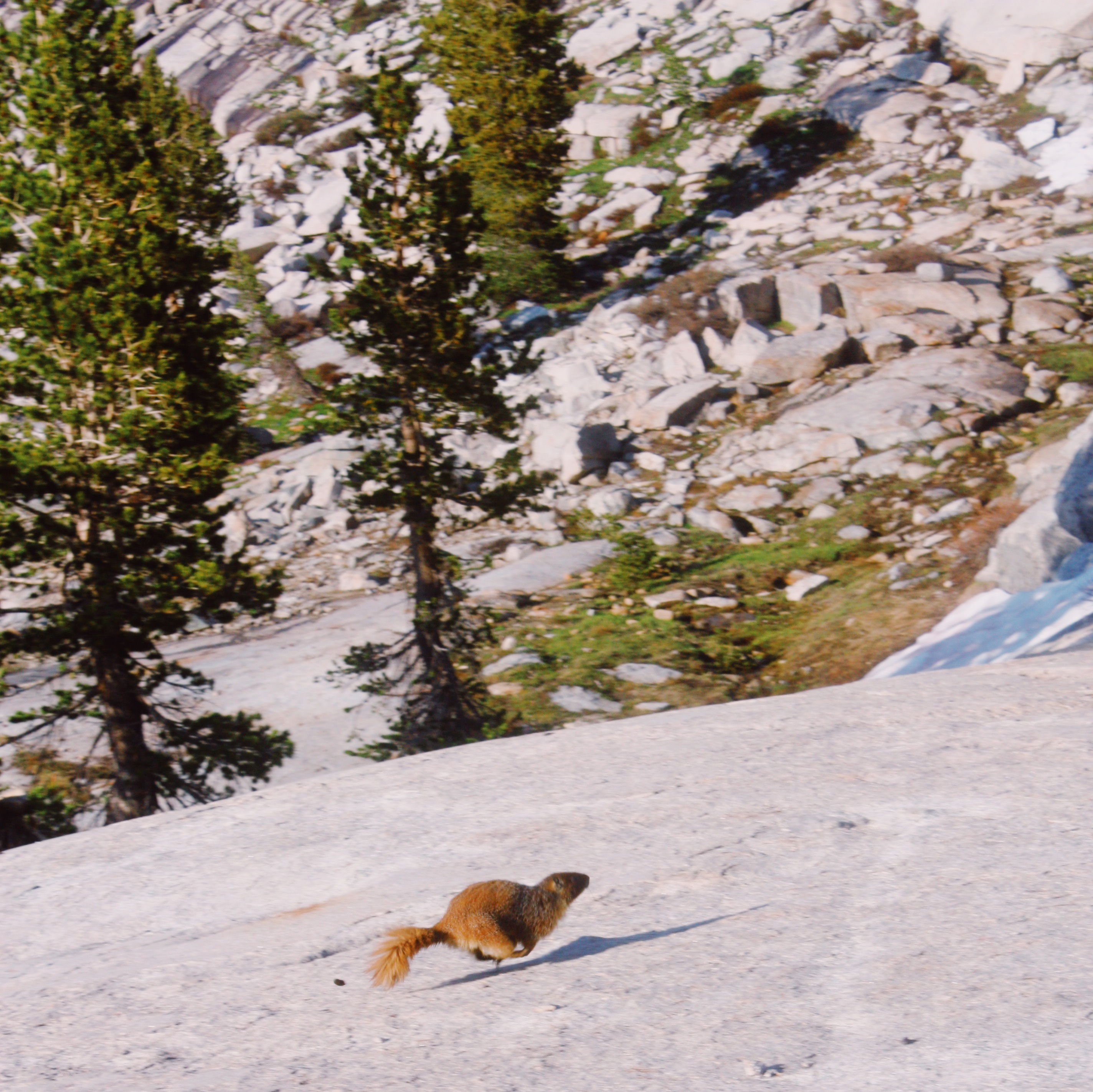
In the morning, after emerging from our tent, we discovered we had some visitors in the night. My brother, always the “unique” one, was obsessed with Vibram’s toe shoes (you know, those shoes that go around each individual toe) claiming they made him feel closer to the trail, feeling the rocks instead of a soul beneath every step. Needless to say, you don’t wear socks with them and they get pretty sweaty. So during the night marmots had come into camp and chewed away at all the salt accumulating in the toes. My brother’s toe shoes were now open-toed shoes. Now, his steps were even more connected to the ground.
After that night we were careful not to leave any sweaty valuables out, but we made a game of trying to attract the marmots to camp with other forms of salt. We dubbed one rock just on the outskirts of our camp “Pee Rock” where we hoped to attract the marmots and get a closer look.
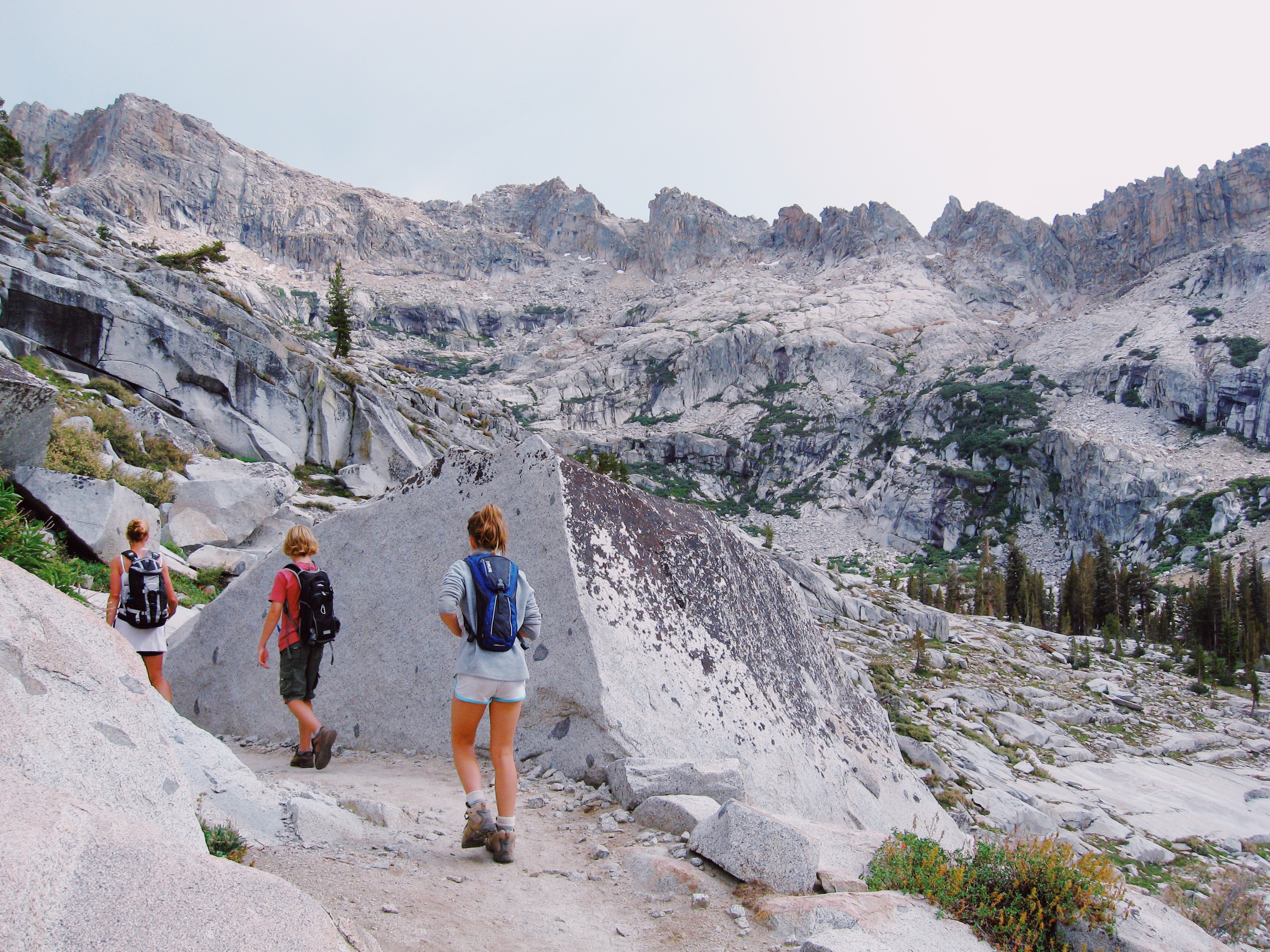
Our second day backcountry we left our packs at camp and set out for a day trip. We scaled the side of the glacial bowl, finding a beautiful meadow and swift, clear river. I had just been given my first SLR camera earlier that year and started to wander, playing with my camera’s shutter speed, figuring out how to catch individual droplets of water spraying over a rock and then the smooth, long exposure shot of water seamlessly falling down subtle rapids in the river. It wasn’t long before I realized the rest of my family had not followed my meandering path deeper into the meadow. This would have been a great time for those Rocky Talkies. But I followed the river back and luckily found my family. Unluckily, my brother was now on the other side of the river and could not get back. He had jumped from a high rock down to a grassy patch on the other side and was now not able to jump from low-land to the high rocks of our side of the river. This is a lesson every kid has to learn: you can’t always make the same moves in reverse. You can jump from high to low but you can’t get back. And that can be a scary thing. The rest of the afternoon was spent finding a safe river crossing. It had to be somewhere shallow so my brother could walk across the river and it had to be somewhere that if he slipped and fell, we could grab him from the river before he eventually ended up in the waterfall that cascades down the glacial bowl. Tears spilled out from under my brother’s sunglasses as his shaky voice asked again if our dad really thought he could make it across. Dad did one better than telling. He took off his shoes, shirt, and backpack and began wadding across the swift stream to my brother’s side, the two of them then returning together. That is a valuable lesson for parents to learn: kids are often afraid to do new things by themselves; by making another sibling or yourself their partner, the task at hand can be a lot less daunting.
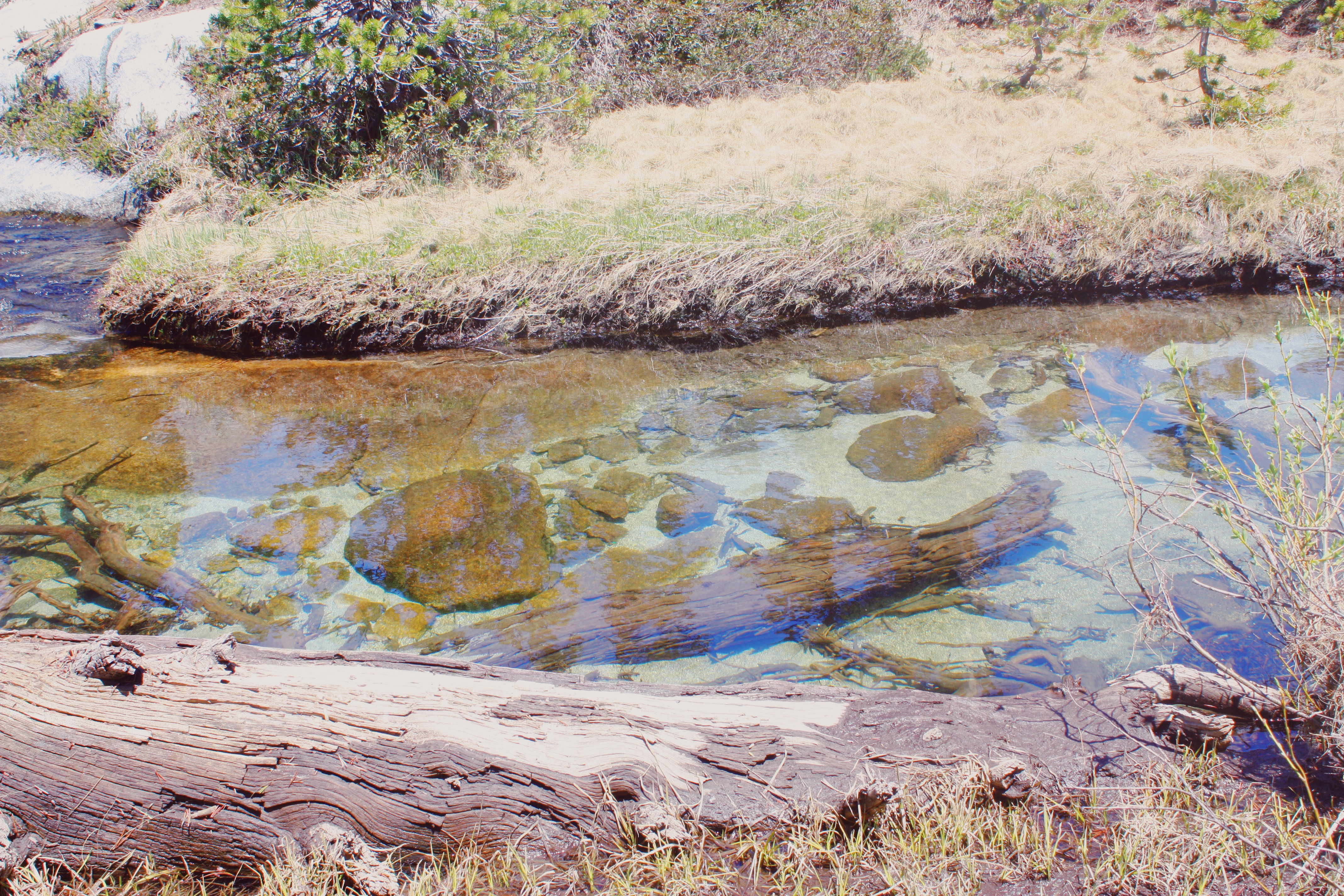
The Ultimate Dad Prank
That evening, back in camp my dad called my brother and me over to him near a patch of trees away from the lake. He was squatting over what looked like animal droppings. “This right here is bear poop. You want to know how I know it is a bear?” my dad says, to which we excitedly reply yes. “You can tell it’s a bear actually by the way it tastes,” dad says as he starts to pick up the poop. My brother and I are shrieking “Ewww dad put that down; stop!” He assures us that it is alright and takes a bite. Our shrieking grows louder. “Here, guys try it, it tastes like berries,” dad says, barely able to keep a straight face by now. At this point my brother and I were in absolute shock and disgust, screaming and laughing at dad for having “poop breath”.
I think if it were up to my dad, my brother and I would still think, to this day, that dad ate poop. My mom, however, let my brother and me in on the joke, telling us to go reach into dad’s backpack pockets to see where the poop really came from. We ran up to dad, grabbing his bag and reaching into the front pockets to pull out a brownie Clif bar!! I have since played this trick on my friends that I take camping and I can say it never gets old.
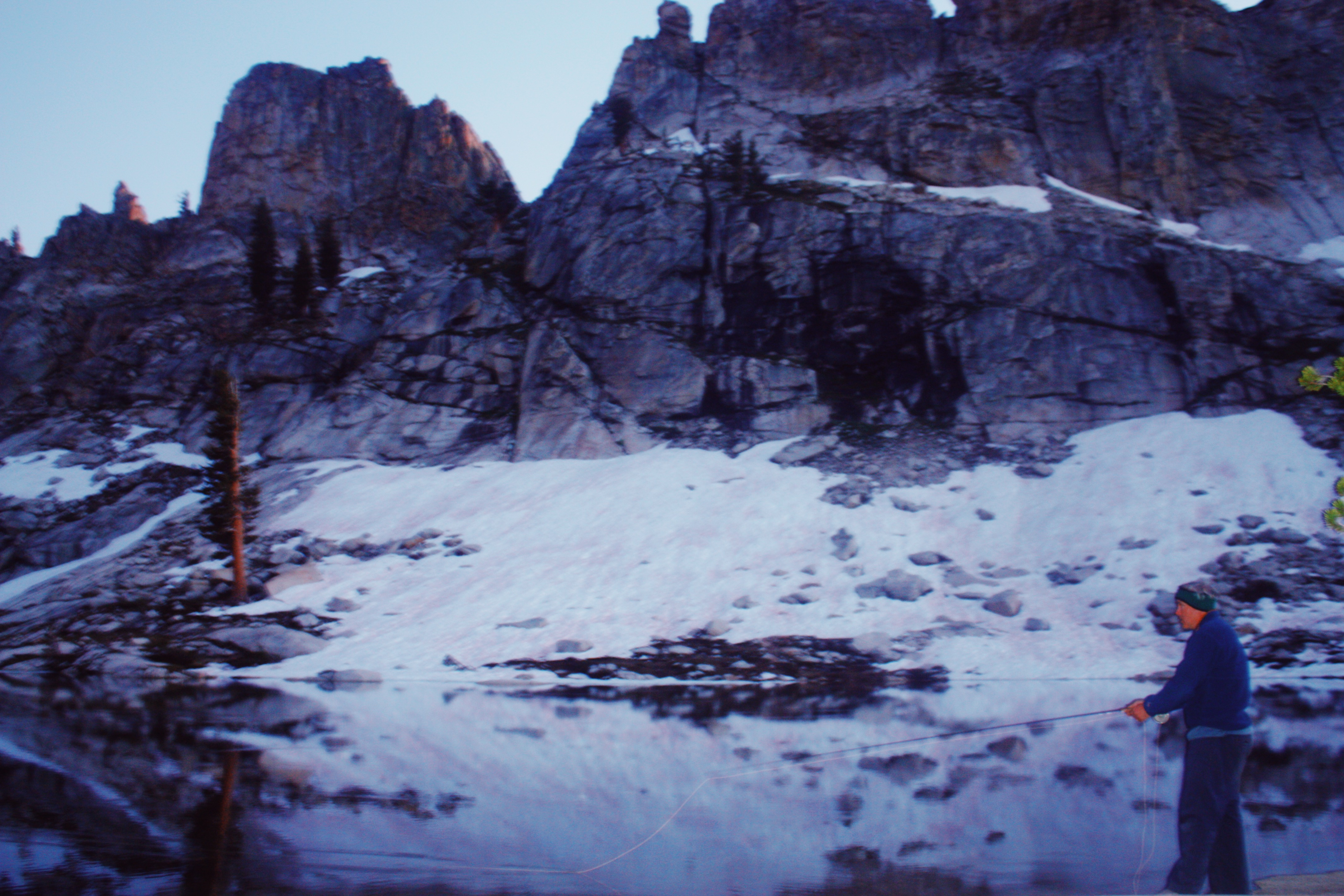
Protection Breeds Connection
When my brother and I were younger our backpacking trips were always shorter, around three days, to keep our packs manageable. So, the third day we packed up camp and hiked the six miles out. We were always taught to “Leave No Trace” and always care for the environment. As we were driving out of the mountains we noticed a lot of smoke and then saw flames erupting from the hairpin turn in the road in front of us. We backtracked to an inn we just passed and asked for shovels. The inn owner said there had been an arsonist in the area who had been starting fires all week but that this was the worst yet. My parents told us we needed to help the mountains we loved and told us to put our shirts over our mouth and nose and try not to breathe in too much smoke but that we had to be brave and start shoveling dirt on top of the fire to smother the flames.

Other cars drove by us and at first, I was envious of the other passengers who got to escape the heat and smoke in the safety of their cars. But as I dug deep into the ground and shoveled large piles of packed dirt, killing the fire that was killing my mountains, I felt proud. I felt connected to the mountain. And I felt the mountain connecting back with me, thanking me for helping, instead of running.
It is those childhood memories that explain my foundational love of the outdoors to this day. The mountains are not just a place to me. The mountains are like my family, they give me love and light every time I stop to sit in their beauty. And I give back to it my appreciation, dedication, and voice. As I leave the academic world and graduate from college, I want my career to further this passion of being a voice for the outdoors.
As a contributing writer to The Outdoor Journal, I’m furthering my duty to give back to nature everything it has given to me by inspiring others to find awe in nature and respect what they love as well.
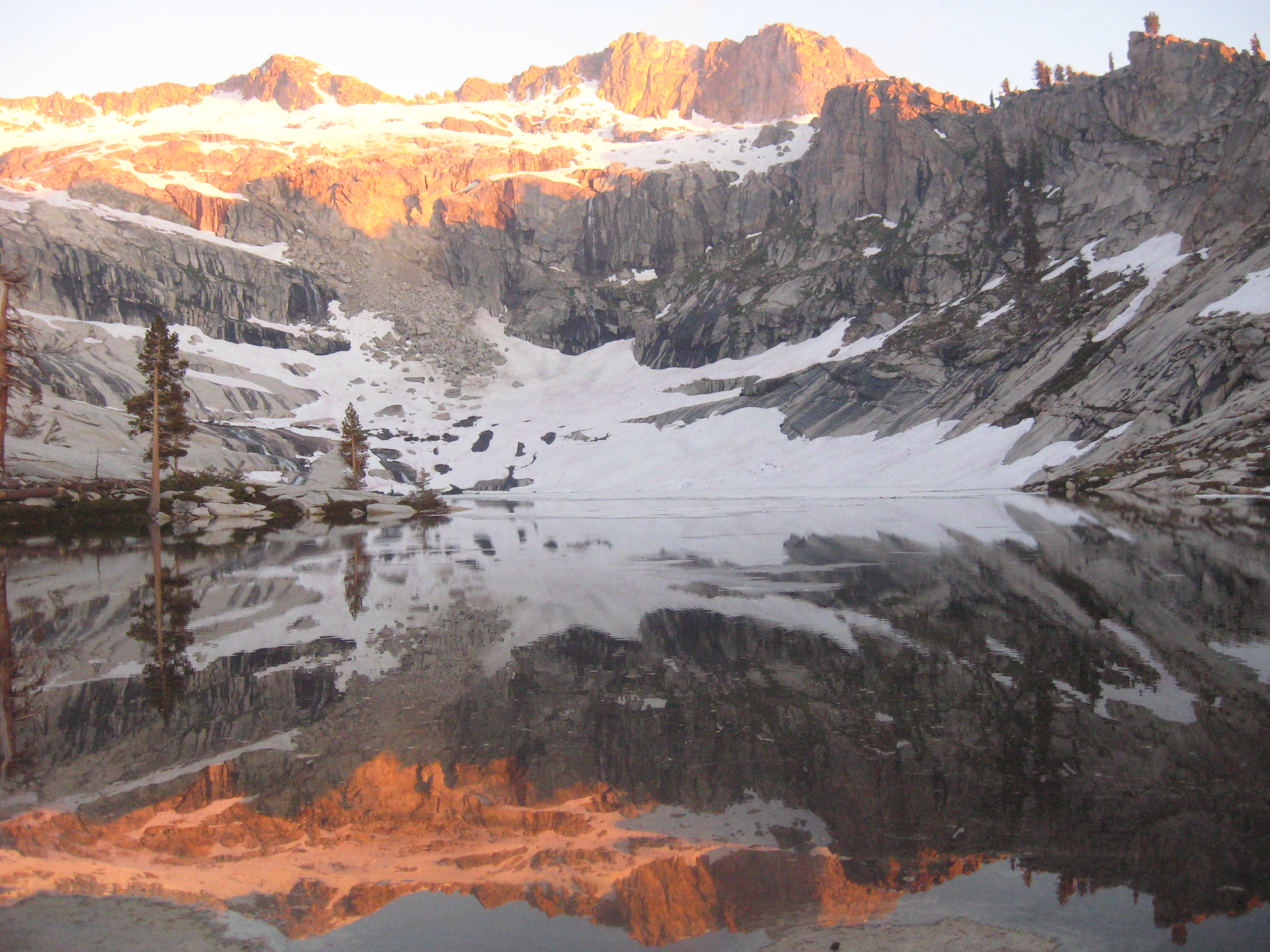


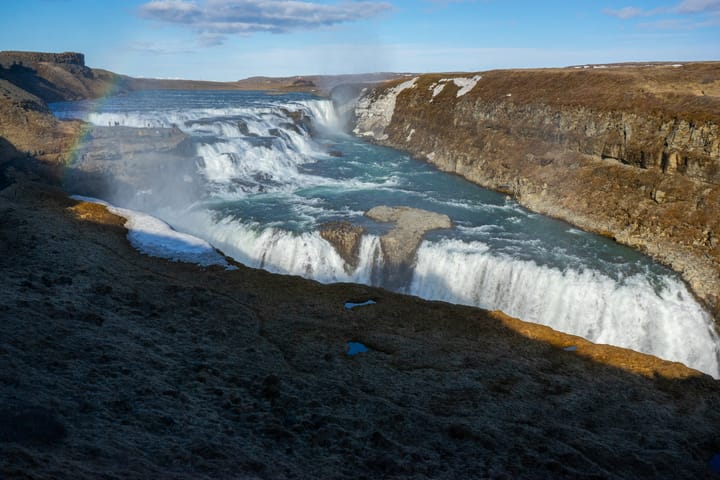
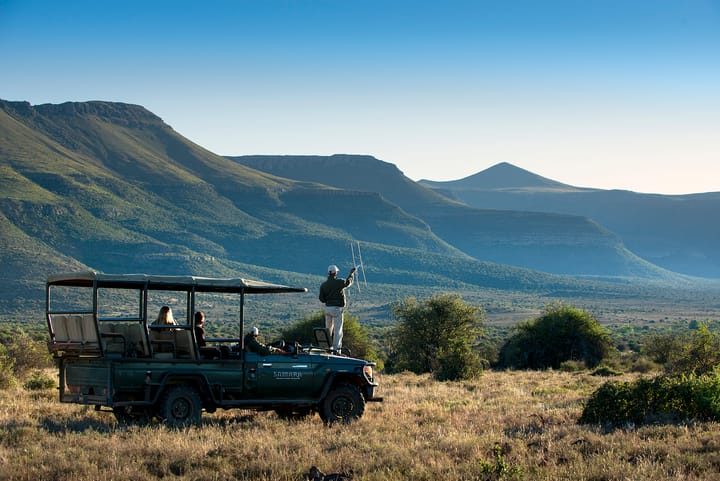
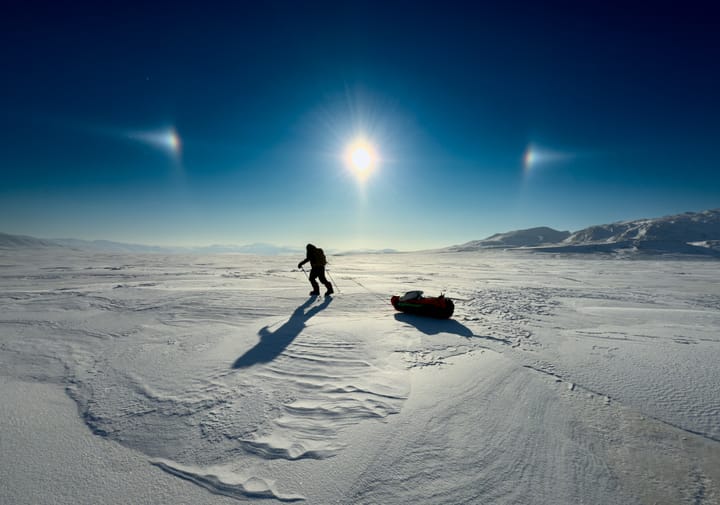
Comments ()